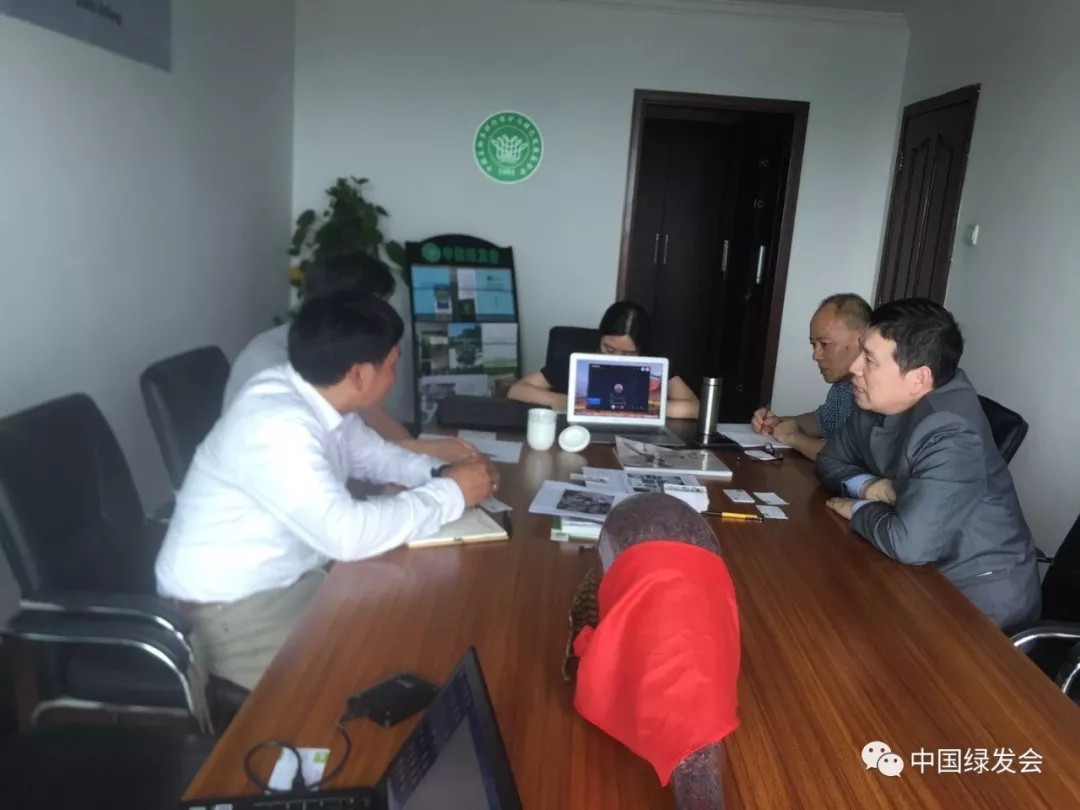Recently, China Biodiversity Conservation and Green Development Foundation (CBCGDF) hosted Mr. Trinh Thang Long and Dr. Fu Jinhe, friends from the International Network for Bamboo and Rattan (INBAR), to discuss the feasibility of polystyrene plastics substitutes and their discontinuation, and to build a framework for future cooperation. The meeting has yielded fruitful results.
In recent two years, plastic pollution has become a hot and frequent term in all conventions, conferences, actions, and initiatives to pursue the sustainable development of human and nature. On June 5, 2018, the United Nations Environment Programme (UNEP) focused for the first time on the issue of plastic pollution and defined the theme of World Environment Day that year as "Plastic War Quick Decision". More than 79,000 tons of plastics are floating in the Great Pacific Garbage Patch. The recovery rate of global plastic is only 9%, and the remaining 5.5 billion tons are landfilled or discarded in nature. The proportion of plastic waste in the sea to plankton has reached 1:2. Without effective action, it is expected that plastics in the sea will surpass fish in 2050. It is frightening that plastic particles can penetrate the viscus and enter the blood, threatening the life of the earth and human beings.
The recently concluded BRS COPs in Geneva reminded delegates to bring their own cups and no mineral water to ensure the sustainability of the Conference by reducing the use of plastics. This shows that plastics are not irreplaceable and plastic pollution is not uncontrollable. At the beginning of the meeting, Mr. Fred Dubee, Senior Adviser of the CBCGDF, said: "The key is whether we can really take some influential and positive measures to make as many stakeholders as aware of the seriousness of the problem and take practical action."
"This meeting is a good start," said Mr. Long from the INBAR. INBAR is the first independent, non-profit intergovernmental international organization headquartered in China. It is the only international development organization targeting bamboo and rattan as two non-wood forest products. The aim is to use bamboo and rattan resources, promote environmental and ecological protection, poverty alleviation and promote fair global trade. Dr. Fu of INBAR introduced that through research, bamboo products have been proved to be able to replace plastic products in many ways. For example, bamboo straw, bamboo cup, disposable tableware, bamboo pulp packaging materials, bamboo fiber, bamboo charcoal board, bamboo car decoration, and bamboo interior decoration materials. INBAR friends stressed that bamboo's fast-growing, self-renewal, soil and water conservation, carbon sink, renewable, degradable, multi-purpose and other characteristics show that it has great potential to replace polystyrene plastics.
"The experience of INBAR and the work of CBCGDF complement each other," said Zhou Jinfeng, Secretary-General of CBCGDF. Since its inception, focusing on the plastic pollution, the CBCGDF has worked flexibly through initiatives, activities, training, meetings and suggestions, actively participating in environmental management, giving full play to the advantages of social public welfare institutions, enhancing public awareness of environmental protection and action, and assuming the role of non-governmental environmental protection forces.
During the meeting, CBCGDF representatives shared with INBAR friends some of their work on "Plastic Pollution Reduction", such as participating in the BRS COPs banning the use of plastic flowers and plastic book covers, and "Green Bottle Action", etc. At the same time, CBCGDF representatives and INBAR friends reached an agreement on the future direction of cooperation on "Plastic Pollution Reduction".
In view of the serious negative impact of plastic waste on inland and marine biodiversity, relevant measures have been taken at home and abroad. For example, Europe will ban the use of disposable plastics from 2021. Hainan, China, will ban the production, sale, and use of plastics from 2025. Bamboo products are a powerful alternative to plastic products. Although the price of bamboo products is about 30% higher than that of plastic products. However, after realizing scale production and technological improvement, its price cost is expected to be greatly reduced. INBAR cooperate with CBCGDF to promote the use of bamboo products instead of plastic products in the future.
"When a problem involves personal interests, people tend to be more motivated to solve it," said Fred Dubee, senior adviser to the CBCGDF. For example, when supermarkets charge 2 yuan per bottle to consumers who use plastic bottles, will people continue to use plastic bottles? Maybe not. Personal problems in the field of plastic pollution reduction may be related to personal awareness, wages, employment, the local strength of plastic pollution reduction, and many needs that are closely related to people's production and life. Whether the work of plastic pollution reduction can be carried out effectively depends to a great extent on the participation and action of all sectors of society. Then, the relationship between "personal interests" and plastic pollution reduction should be worth pondering.

(Photo credit: CBCGDF)
Original Chinese article:
http://www.cbcgdf.org/NewsShow/4937/8699.html
By / Li Xue
